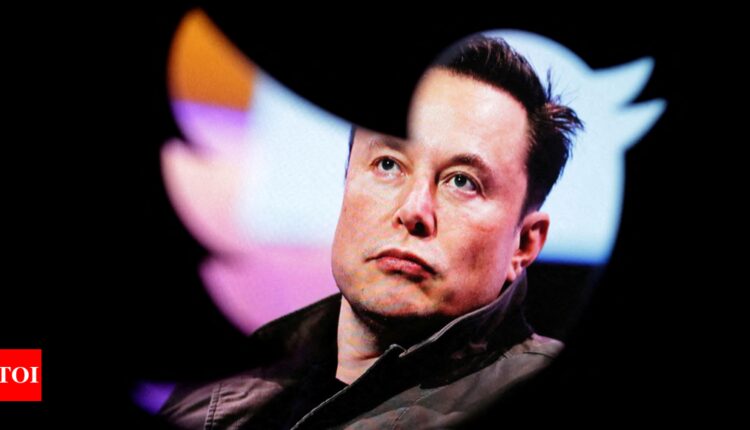Twitter’s advertisers pull back as layoffs sweep through company – Times of India
The Volkswagen Group joined several other companies in recommending that its automotive brands, which include Audi, Lamborghini, Bentley and Porsche, pause their spending on Twitter out of concerns that their ads could appear alongside problematic content. Danish brewing company Carlsberg Group also said it had advised its marketing teams to do the same. Outdoor equipment and apparel retailer REI said it would also pause posts in addition to advertising spending “given the uncertain future of Twitter’s ability to moderate harmful content and guarantee brand safety for advertisers.”
Civil rights groups including GLAAD and the Anti-Defamation League held a conference call Friday urging other companies to abandon Twitter, saying that mass layoffs there were gutting what they described as an already anemic content moderation staff.
Even Musk acknowledged the advertising slump, tweeting Friday morning that Twitter “has had a massive drop in revenue,” which he blamed on activist groups pressuring advertisers.
The first chaotic week of Musk’s ownership of Twitter has given Madison Avenue whiplash, as advertisers struggle to reconcile the billionaire’s promises to make the platform safe for brands with concerns about a surge of extremism and false narratives, including one promoted by Musk himself.
In his tweet about Twitter’s faltering revenue, Musk said that “nothing has changed with content moderation and we did everything we could to appease the activists” — a claim that civil rights groups denied.
A minute before he posted his comment, ad-tracking platform MediaRadar released statistics showing that the number of advertisers on Twitter had dropped from May, soon after Musk’s bid for the platform was announced, through September, when he was still fighting to get out of the deal he struck to buy Twitter in April.
MediaRadar, which tracks ad campaigns for millions of companies, said that data for October, when Musk took over Twitter, would not be available until later this month.
Twitter had 3,900 advertisers in May and 2,300 in August. The number rose to 2,900 in September, according to MediaRadar. The analytics company found that General Motors, which paused its spending on Twitter last week, had spent an average of $1.7 million a month on the platform.
There were more than 1,000 new advertisers on the platform each month before July, when Musk’s feud with Twitter began to intensify and the number of new advertisers sank to 200.
In September, there were 668 new advertisers, MediaRadar found. Factors such as economic conditions most likely played a role in the exodus, as did uncertainty about Twitter’s ownership and content moderation policies, Todd Krizelman, MediaRadar’s CEO, said in a statement.
“Clearly, this acquisition is challenging advertiser confidence,” Krizelman said. He added that Musk’s plans to look for revenue sources beyond ads could mitigate any damage caused by Madison Avenue.
Following Musk’s tweet, a coalition of civil rights and activist groups called a news conference to push for a global advertising boycott of Twitter.
“We are witnessing the real-time destruction of one of the world’s most powerful communications platforms,” Nicole Gill, the executive director of nonprofit group Accountable Tech, said on the call. “Unless and until Musk can robustly enforce Twitter’s existing community standards, the platform is not safe for users or for advertisers.”
Angelo Carusone, the CEO of progressive nonprofit Media Matters for America, said on the call that he had worked on several efforts to use advertiser boycotts to pressure social media companies to clean up their platforms. Usually, he said, some of the advertisers he solicits will turn down his requests, saying that reaching potential customers is a higher priority than making a point to Silicon Valley.
But after the activist coalition reached out this week to Twitter’s top 20 advertisers, including Anheuser-Busch, Disney and Procter & Gamble, Carusone said that all the companies he had been in contact with said they were either considering a spending pause or are implementing one.
The companies did not immediately respond to requests for comment Friday.
“I’ve never experienced that before,” Carusone said. “And I think that’s the thing that’s most revealing, and demonstrates real consensus about the current state of the crisis that Twitter is in.”


Comments are closed.